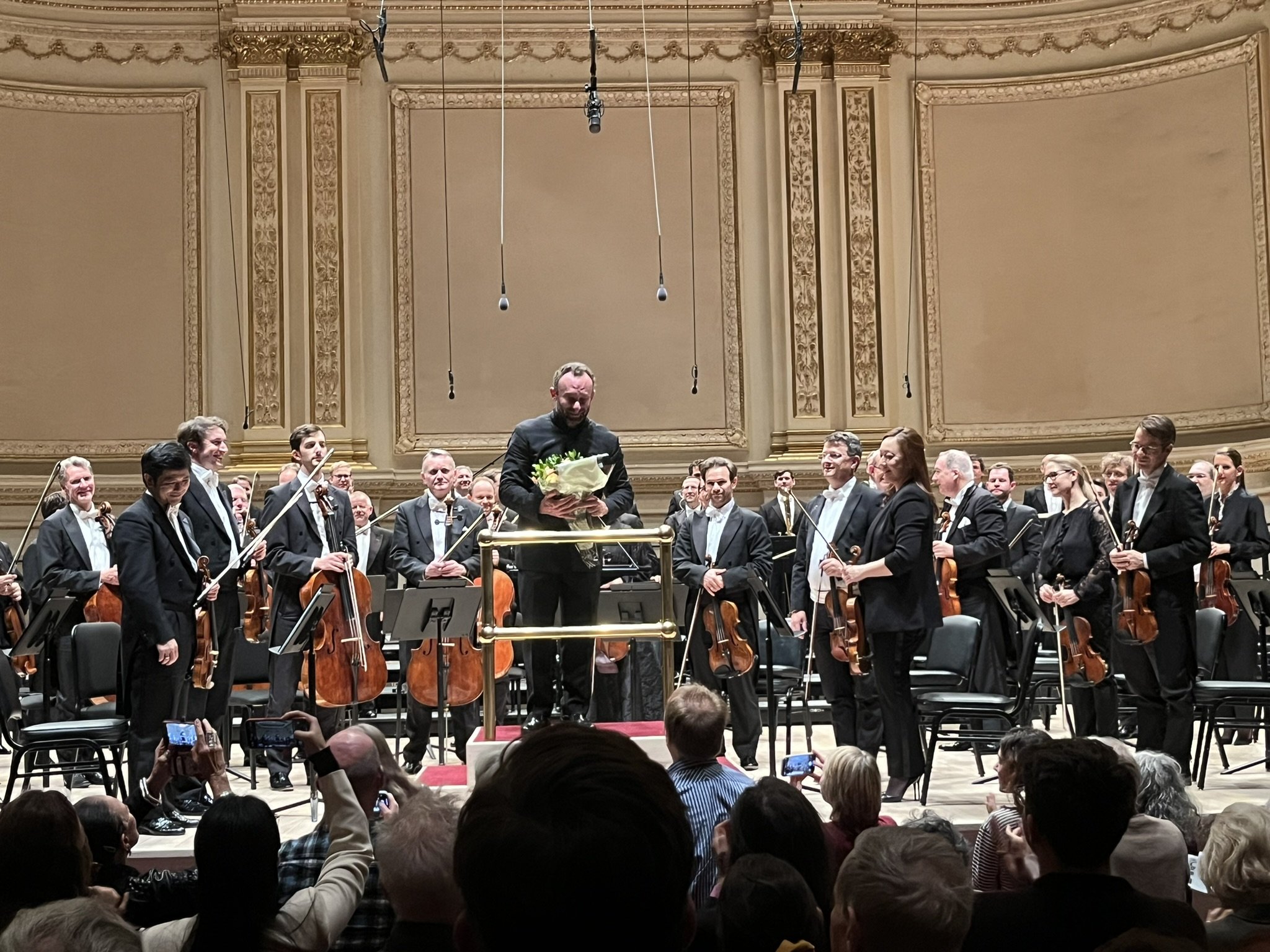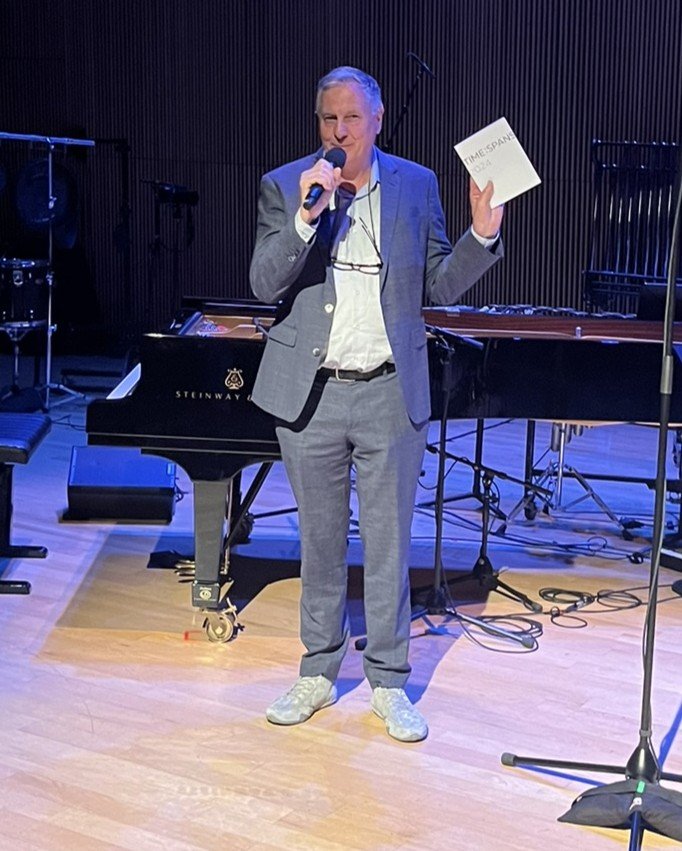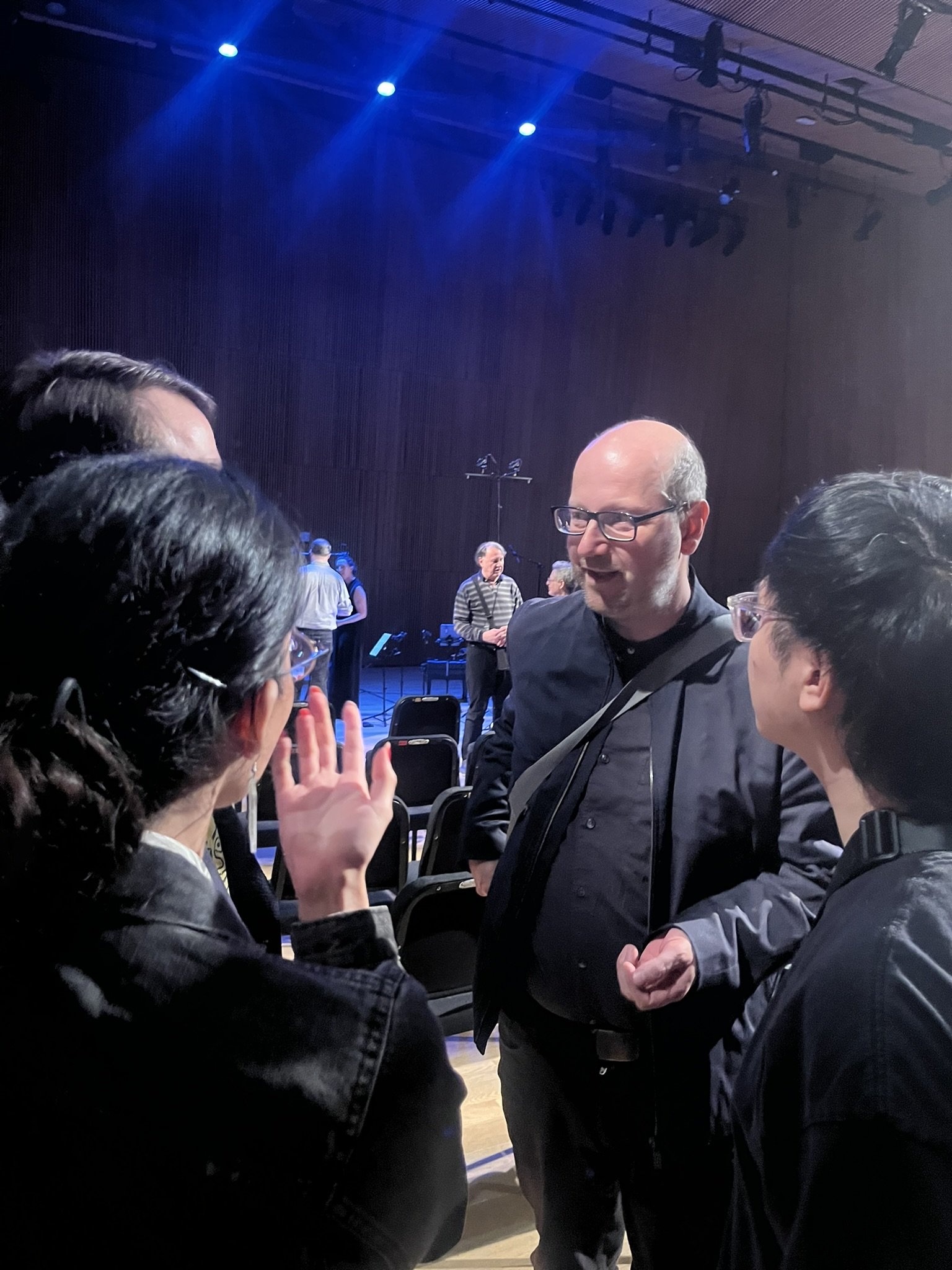Even the audience felt like soloists. Under Kirill Petrenko, the orchestra combined energy and precision, with Vilde Flang’s violin stunning. The program included Rachmaninoff’s Isle of the Dead, Korngold’s Violin Concerto, and Dvořák’s Symphony No. 7. Individuality and freedom abounded, yet the music unified everyone. Highlights were Rachmaninoff’s intense solo, Korngold’s chamber-battle-like interplay, and Dvořák’s cello tutti. Petrenko proved he creates precise, vivid, and powerful musical experiences.
Read MoreMao Fujita at Carnegie
Mao performed at Carnegie on Sunday afternoon. Yashiro felt like him, and the high notes in the second half were beautiful, reminiscent of Trifonov’s first Carnegie visit. Liszt was great, but Yashiro was amazing. Mozart and Beethoven felt vivid, with Mao’s breathing and energy connecting to the music like Pollini or Brendel. The hall was relaxed; I could see every detail and hear even snoring during Appassionata. Mao looked happy throughout. His performance hinted at Chopin’s interest in Beethoven, just as Yashiro reflected Scriabin. Classical music’s power to unite different approaches was deeply appreciated in these chaotic times.
Read MoreYarn/Wire: Challenge to Difference
Vivaldi’s Spring experiments with harmony and ingenuity; Yarn/Wire challenges differences using various tools, even everyday objects. In AUDITORY SCENES, two performers applied electric massagers to a large drum, creating a sensation never experienced before. No familiar melodies, yet the tools connect to everyday life, opening minds like the flow of the Ganges. First-time viewers encounter a test of harmony and ideas, breaking mental shells and expanding perception—a refreshing experience before the busy concert season.
Read MoreCandillari’s prayer. I felt the ears she has developed from everything she has seen and heard.
カンディラーリの祈り。彼女がこれまでに見たり聴いたりしてきた耳を感じた。
Candillari's Ear and Heart at Juilliard Orchestra
On Monday night at Alice Tully Hall, the Juilliard Orchestra, conducted by Daniela Candillari, was full of warmth, dedication, and energy. Bacewicz’s Overture, written in Nazi-occupied Poland, was lively and upbeat. Juilliard student Sophia Werner’s Barber Violin Concerto showcased a fresh, rich tone and impressive dynamics. Shostakovich’s Symphony No. 10 conveyed deep fear and pain, with hesitant timpani and a sharply ironic concertmaster solo, all brought out masterfully by Candillari’s careful, expressive direction.
Read MoreYulian's Both Hands
Yulian Avdeeva performed in New York, filling the hall with emotion. Since having COVID, I felt a tightness in my heart, tears streaming, yet Liszt flowed through Yulian’s hands like a dream—rich, elaborate, and story-filled. Chopin’s delicate yet bold works were rendered on an orchestral scale. Yulian’s program wove Chopin and Liszt masterfully: Dance, Barcarolle, Chopin’s homage to Beethoven, Polonaise, and Liszt’s B minor Sonata. The encore was Liszt’s arrangement of Verdi’s Rigoletto quartet. A truly wonderful Romantic experience.
Read MoreAt Pioneer Works, Earl Howard and ICE, The opening venue since 2016
Inspired Inspiration in Brooklyn
The blind man, barefoot, enjoyed musical sparks with ten musicians. At Pioneer Works in Brooklyn, he and the ICE members engaged in a sonic conversation that seemed to awaken memories and imagination. In Rick’s piece, words transformed into sound, vividly emerging in the space. This new musical experience, rooted in everyday life, offers those of us living today a sense of guidance toward the future.
Read MoreThomas Fichter, the festival’s executive and artistic director. Saturday, August 24, 2024 at Mary Flagler Cary Hall, DiMenna Center for Classical Music
Time Spans: Life of Music 音楽の命 ニューヨーク現代音楽フェス
Yarn/Wire performed Olga Neuwirth’s Black Dwarf (2023) and works by Peter Eötvös at the Timespans 21st Century Music Festival in New York on August 23. Curator Thomas Fichter emphasizes giving new works sufficient rehearsal time so they can develop a “life of their own,” allowing each audience member to connect uniquely through experience. The music’s seeds transcend time and senses. Next year, the program will tour Montreal, Hesse, and Darmstadt.
Read MoreKlaus Lang: Space Paradox
At a New York studio, four string instruments carried me on a journey through time, their sounds clear and unclouded by audience noise. Lang invited us to experience the beauty of sound itself, and the repeated notes evoked vivid memories of steppes, winter winds, and morning mist with swans. Though the sounds traveled, they returned to their origin, and when the concert ended, even everyday noises seemed musical—until morning, when the world returned to normal.
Read MoreFranz Welser-Möst, stand on the Carnegie stage with his Cleveland Orchestra in January 2024. The guy on his left side is the new Concertmaster of the Cleveland Orchestra.
Lieber Franz 親愛なるフランツ
Franz came to Cleveland in 2002 and has returned nearly every year, bringing thrilling programs of Beethoven, Prokofiev, and Shostakovich. I once watched Beethoven’s Seventh at Carnegie, where his fast tempo pushed the orchestra to its limits yet never collapsed. Franz embodies the composer’s spirit, patiently guiding the orchestra without imposing himself, making each performance feel immersive and timeless. Even a short piece, like Bartók, can capture the audience completely, as if transported on a multi-year journey. Cleveland remains my favorite orchestra for how it conveys the music’s soul.
Read MoreBach x YMO: Space Travelers バッハとYMOの宇宙旅行
Bach’s son and Hosono resemble each other in appearance, and their music is similar as well.
Released in ’79, Technopolis by YMO features synthesizers mainly handled by Sakamoto, with Hosono on bass. In the middle section, Hosono adds a wriggling, almost octopus-like obbligato over Sakamoto’s part—and it’s incredibly skillful! As you’re marveling at Sakamoto’s playing too, the musical scene shifts, and that wriggling line seems to run through your body.
Moreover, amid the solemn electronic programming, certain passages emerge with restraint and subtle expression—this controlled nuance calls to mind the harpsichord music of Bach’s son in the 17th–18th centuries.
Read MoreSound and Sumo: Sparkle of the Wildness 音と相撲はワイルドな衝突
I love both music and sumo, and during the July tournament I suddenly recalled the third movement of Bruckner’s Seventh. The crescendo before the winds enter felt like driving an opponent to the edge, the timpani tremolo sharpening the tension until the decisive moment. Then the swirling strings crashed in—like a perfectly timed throw—where wild energy met the vast illusion of the orchestra.
Read MoreMao Fujita: Verbier Festival 2024
Mao Fujita, born 1998 in Tokyo and 2019 Tchaikovsky Competition second prize winner, first impressed me in 2022 at Verbier performing Mozart. After Pollini’s cancellation, he appeared at Carnegie Hall in January 2023, moving me deeply, especially with Schumann. His playing blends gentleness with intense passion, conveying strictness, sorrow, and fear with fragile yet powerful expression. Unlike others, his energy feels fresh and unique, making live performances of any repertoire vividly immersive and highly anticipated in 2024.
Read MorePletnev: Mozart Chatting to Us in Verbier
I looked at his review, but everyone is terrible at describing his art. But here, Pappano and the Orchestra are all chatting with each other as if Mozart is chatting with us.
Read MoreStockhausen: The ultimate world of space walking
As if thrown into space
The ultimate world of space walking
まるで宇宙に放り出されたような感覚。究極の宇宙遊泳世界を是非ご堪能下さい。
Read More“Music is always profoundly human,” Wolfgang Rihm, An Obituary by Berliner Philharmoniker
Wolfgang Rihm, An Obituary by Berliner Philharmoniker
“Create sound events with a mind of their own.”
“Music is always profoundly human.”
“Even my fears, my anxieties and, of course, euphoria.”
Rihm was a composer who was not afraid to show vulnerability within his creative process.
Read MoreWhat makes a good listener? - Music Critic, Corinna da Fonseca-Wollheim
Corinna da Fonseca-Wollheim argues that attentive listening—especially to complex instrumental music—trains the mind to follow multiple layers simultaneously, quiets distractions, and strengthens our capacity to truly listen in daily life. Music thus becomes both entertainment and essential mental exercise.
Read MorePianist Alexandre Kantorow, Hard to miss new generation
"The stereotype is that competitions mint quick-fingered but mindless virtuosos, while the Gilmore rewards more mature, idiosyncratic artists. To win both the Tchaikovsky and the Gilmore suggests Kantorow has technical security as well as something to say." By Zachary Woolfe
In 2019, at age 22, Alexandre Kantorow became the first French pianist to win the Tchaikovsky Competition's First Prize, as well as the Grand Prix, awarded only three times before in the competition's history. Hailed by critics as the“reincarnation of Liszt” (Fanfare Magazine), he received the Gilmore Artist Award 2024, considered one of the most prestigious international piano prizes,and awarded only every 4 years. He is the first French artist and youngest winner of the Gilmore Artist Award.
Read MoreDaniil Trifonov at Carnegie 12.12.2024
Thanks to WQXR
Program:
RAMEAU: Suite in A Minor from Nouvelles suites de pièces de clavecin
MOZART: Piano Sonata in F Major, K. 332
MENDELSSOHN: Variations sérieuses
BEETHOVEN: Piano Sonata No. 29 in B-flat Major, Op. 106, "Hammerklavier"
Encores:
GREEN: "I Cover the Waterfront" (after Tatum)
SCRIABIN: Andante from Piano Sonata No. 3, Op. 23
MOMPOU: Variations on a Theme of Chopin: Var. 9. Valse
Happy 80's! Maria João Pires Bach Works
BRSO: Maria João Pires celebrates her 80th birthday!
BRSO: Maria João Pires - Mozart Piano Concerto No 9
On July 23, 2024, the pianist Maria João Pires celebrates her 80th birthday!
At the end of June, she was a guest of the Bavarian Radio Symphony Orchestra and played the Piano Concerto in E-flat major, KV 271 ("Jenamy") by Wolfgang Amadeus Mozart under the direction of Giovanni Antonini.
We were allowed to accompany the concert in the dress rehearsal.
Recording
"I have no hesitation in declaring Maria João Pires—a pianist without a trace of narcissism—among the most eloquent master musicians of our time." (Bryce Morrison). Gramophone.co.uk.
Reference System
“stand aside and let the music through.”
“I constantly heard such a wealth of inner detail being revealed from some of my favorite recordings.”
“If I wanted everything to sound good no matter what, I would have bought that old McIntosh 275 so many years ago.”
“I get my warm, lush and fuzzy feels and at the same time I hear deeper into the music than ever before. For me, that sound has become my recipe for happiness.”
Mojo2
Spendor S3/5R2




















